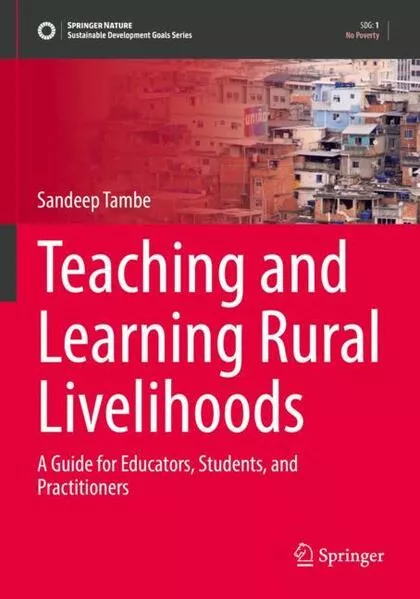
- Publikationen ca: 3
- Fragen & Antworten
Sandeep Tambe
Sandeep Tambe is a member of the Indian Forest Service. He holds a doctoral degree in forest management, and a graduate degree in engineering from the Indian Institute of Technology, Mumbai. He has multi-disciplinary expertise in physical, natural, and social sciences and management disciplines. Having served in government, civil society, and academic setups has enabled him to better understand the worlds of science, policy, and practice. He is passionate about nature conservation, strengthening rural livelihoods, and democratic governance of the commons. He served in the Rural Development Department in the Government of Sikkim from 2007 to 2015, where he gained hands-on experience in managing diverse rural development programmes. He embedded a people-centric, results-based, and scientific approach in these programmes, and many of these innovations were recognized and endorsed for national mainstreaming. Following his stint in practice and shaping policy, he joined as a professor at the Indian Institute of Forest Management (IIFM) in 2015. Here he got the opportunity to study rural livelihoods as an academic discipline and also teach it to graduate students. He has published 20 research papers and 6 books. He was selected as the top 25 persons of the year by the Forbes India magazine in 2010. He was conferred the T.N. Khoshoo Memorial Award in 2012 for his efforts in sustainability and community-based governance of natural resources and the State Award for Meritorious Service in 2014. The livelihood programmes managed by him won the Prime Minister’s Award for Excellence in Public Administration in 2013, National Award for Excellence in Convergence in 2015, and the National Award for Transparency and Accountability in 2015. In 2017, the IIFM student council selected him for the Best Teacher Award.
Teaching and Learning Rural Livelihoods
This book synthesizes the conceptual and applied aspects of rural livelihoods as a discipline, and collates the analytical frameworks and approaches that have been designed, applied, and discussed over the last five decades. These include the sustainable livelihoods approach with its vulnerability-asset construct, collective governance of common pool resources, livelihood trajectories and poverty dynamics, rights-based approach and social justice, graduation approach for the ultra-poor, and the resilience framework to address complex risks.
Teaching and Learning Rural Livelihoods
This book synthesizes the conceptual and applied aspects of rural livelihoods as a discipline, and collates the analytical frameworks and approaches that have been designed, applied, and discussed over the last five decades. These include the sustainable livelihoods approach with its vulnerability-asset construct, collective governance of common pool resources, livelihood trajectories and poverty dynamics, rights-based approach and social justice, graduation approach for the ultra-poor, and the resilience framework to address complex risks.
Teaching and Learning Rural Livelihoods
This book synthesizes the conceptual and applied aspects of rural livelihoods as a discipline, and collates the analytical frameworks and approaches that have been designed, applied, and discussed over the last five decades. These include the sustainable livelihoods approach with its vulnerability-asset construct, collective governance of common pool resources, livelihood trajectories and poverty dynamics, rights-based approach and social justice, graduation approach for the ultra-poor, and the resilience framework to address complex risks.


